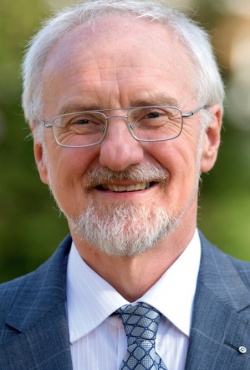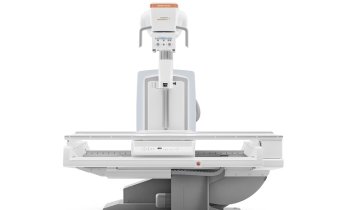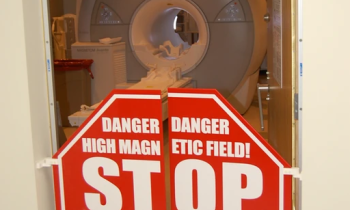Rogue Dutch doctor prompts calls for EU early warning system
When physicians lose their licence to practice in their homeland, the EC warns that Member States should exchange that information faster and more reliably
There are too many loopholes that allow bad or fraudulent physicians to beat the system.

How else can doctors move from hospital to hospital throughout Europe despite their pending law suits? Only a few weeks ago a particularly crass case made the headlines: A hospital in southern Germany dismissed a Dutch neurologist without notice when it transpired that in the Netherlands the physician is facing major medical malpractice charges. The EU Commission is working at full stretch to review the EU Directive on the recognition of professional qualifications and aims to accelerate and improve Europewide information exchange as soon as a physician loses his license in his home country. Free movement of labour in the EU is not without problems: physicians – just like members of any other profession – can work in any EU country.
However, the supervision and administration infrastructures are not prepared to deal with professional mobility, not on the national and much less on the European level. In the case at hand the physician had met all formal requirements to work as a locum doctor in Germany: he had a valid medical license as well as a specialist physician license issued by a competent body in North-Rhine Westphalia. Equipped with these documents he freelanced at several hospitals in different German States. Nobody knew, or suspected, that he was facing charges in the Netherlands. Even when, in 2011, he had to return his license in the Netherlands, his thenemployer only checked whether the submitted documents were indeed valid. No information on the pending law suit ever made it across the border.
Meanwhile, in the Netherlands, the case received high publicity. Dutch media called the 67-year-old neurologist ‘Dr Frankenstein’. The police investigation file lists concrete evidence of offences: between 1998 an 2003, as a hospital physician in the Dutch town of Enschede, the accused allegedly misdiagnosed almost 200 patients as having Alzheimer’s or Parkinson’s diseases, or multiple sclerosis, and prescribed strong medication. Nine patients died and thirteen underwent brain surgery based on the misdiagnoses. In Amsterdam the case triggered one of the largest medical law suits in the Netherlands, which commenced in November 2012. When Dutch journalists discovered the physician in the southern German town of Heilbronn neither authorities nor the hospital management were aware of the charges. The hospital immediately ordered a review of 443 patient records and, in early February 2012, external experts concluded that no German patients were harmed by the Dutch physician’s actions.
Shortage of physicians puts hospitals under pressure
Has Germany’s shortage of physicians reached a point where hospitals are quick to hire foreign locum doctors without thoroughly screening the applicants? About every second hospital there needs ‘itinerant physicians’, who work on a freelance basis for a few weeks or months. What needs to be done at the European level to sufficiently protect patients? The case of the Dutch physician in a German hospital sounded the alarm bells in Brussels. Claudia Guske, Press and Media Officer at the EU Commission, says Directive 2005/36/EC on the recognition of professional qualifications will be amended to include an ‘early warning system’.
The newly introduced article 56a requires the competent authorities in a Member State to inform all other Member States as well as the Commission when the license of a physician, a specialist physician or any other member of a healthcare profession is revoked. The notice is supposed to be disseminated within three days, confirms the office of Dr Peter Liese MEP. Experts welcome this initiative as an important first step to increase patient safety in Europe. Professor Frank Ulrich Montgomery, head of German Medical Association, is happy to hear that, in future, the Member States can proactively warn one another. Hans-Joachim Freese, Media Officer of the Marburger Bund, the German association of hospital doctors, calls the introduction of such an early warning system a ‘vital step’.
Germany‘s federal structure – another obstacle
As far as Germany is concerned, the government needs to review the country’s federal structure to ensure that notifications reach the competent authority. Nicolai Schäfer, Director of the Bundesverband deutscher Honorarärzte (German association of locum doctors), points out major gaps in the fragmented administrative structure in Germany. ‘The German physicians’ associations at State level, which were founded in the last century, are not prepared to handle the phenomenon of locum physicians,’ he said, adding: ‘The recent events involving the Dutch physician are shocking but they are in no way related to locum doctors as such.’ Indeed, the Dutch neurologist remained undetected because he did not register with the competent physicians’ association in the State of Baden-Württemberg. The president of that body, Dr Ulrich Clever, now urges hospitals to require their applicants to submit a current registration certificate of the competent physicians’ association. But what can a piece of paper prove? Definitely not the quality of a physician.
Hospitals need to screen applicants more thoroughly
Heinz Kölking, president of the European Association of Hospital Managers (EAHM), passes the ball to the hospital managers. They, Kölking stresses, need to screen their staff with utmost care taking into account professional qualification, experience and social skills – no matter whether the physicians apply for a permanent or a temporary position and whether they are from Germany or abroad. The EAHM President recommends that the hospitals ‘develop and implement standardised procedures with defined criteria and steps.’ The criteria must be designed in a way that formal qualifications of a foreign applicant can be evaluated.‘But we lack information,’ Heinz Kölking concedes. He plans to put the issue on the agenda of his association.
Nicolai Schäfer, who represents the locum doctors, goes even further. His organisation suggests the introduction of a certificate for locum doctors where, in the certification process, documents as well as references will be reviewed and supplemented by an Internet search. He hopes that such a certificate will help hospitals to screen their applicants better.
04.03.2013








